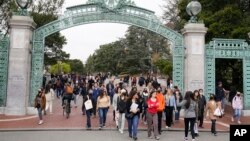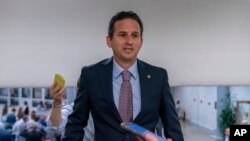Student Union
New in the Glossary of Confusing Words: Class
Merriam-Webster's 11th Collegiate Dictionary lists the meanings of "class" as follows:
a:a body of students meeting regularly to study the same subject b : the period during which such a body meets c : a course of instruction d : a body of students or alumni whose year of graduation is the same.
Could you please give sentence examples conveying the different meanings above?
Class is one of those fun (?) English words that have lots of different meanings. In general, a class is a group of things that have an attribute in common. That's how you get "upper class" people (and social classes) and why the USS Enterprise is a "Constitution class" starship.
Class
That's also why it makes sense to use "class" as a term for a group of students who graduated or will graduate in the same year.
"I'm Harvard class of 1995."
As Robert said, "class" is also a unit of education. It can be synonymous with "course," meaning a series of sessions in which students are taught one subject [check out our previous Glossary entry for "course"]:"What classes are you taking next semester?"
"There are 20 other students in my biology class."
"The English department offers classes in modern literature."
"Class" can also mean one single session of instruction [Note: "course" cannot be used in this way]:"I can't go to the movies, I have class."
"I didn't do the reading for today's history class."
LessonRobert also asked:
Compare the use of "class" and "lesson":
"Who is teaching the class?" "Who is teaching the lesson?"
A "lesson" is a subdivision of a course of instruction. For example, maybe your English course is broken up into lessons on regular verbs, irregular verbs, adverbs and adjectives.
Because courses are already conveniently divided into separate meetings, it's logical to think of each session as containing one lesson. Lessons don't have to line up with class sessions though ("In today's art class we'll have a lesson on painting and a lesson on sculpting." "Over the next two classes we'll work on lesson 3 in your textbook.").
So in Robert's two examples:
"Who is teaching the class?" is ambiguous and could be asking about one session or the entire course.
"Who is teaching the lesson?" would usually be asking about one session.
Do you have a word to contribute to our Glossary of Confusing Words? Share words that have confused you or that might confuse others about studying in the U.S. Leave your suggestions in the comments, or use the form below.Loading...
See all News Updates of the Day
Universities in Middle East building research relationships with China

As China bolsters research relationships with universities in the Middle East, the United States has taken notice – especially when that research involves artificial intelligence.
Reporting for University World News, Yojana Sharma has the story. (March 2024)
Tips for staying safe while studying in the US

Recent news events have raised safety concerns among some international students studying in the United States.
Adarsh Khandelwal, writing in the India Times, has tips for staying safe from the moment you arrive until the day you complete your studies. (March 2024)
Some colleges are making digital literacy classes mandatory

A 2019 study by Stanford found that most college students can’t tell the difference between real and fake news articles. Amid rampant online disinformation, and the threat of AI-generated images, some schools are making students learn “digital literacy” to graduate.
Lauren Coffeey reports for Inside Higher Ed. (March 2024)
With federal student aid delays, students aren’t sure what college will cost

The U.S. Department of Education’s federal student aid form (FAFSA) experienced serious glitches and delays this year.
Now, many students have been admitted to college, but don’t know how much money they’ll need to attend.
Read the story from Susan Svrluga and Danielle Douglas-Gabriel for The Washington Post. (March 2024)
Senator draws attention to universities that haven’t returned remains

More than 70 U.S. universities continue to hold human remains taken from Native American burial sites, although those remains were supposed to be returned 30 years ago.
Jennifer Bendery writes in Huffington Post that one senator has been using his position in an attempt to shame universities into returning remains and artifacts. (April 2024)







